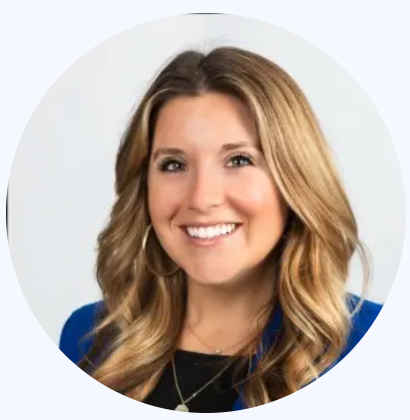About Henry Ford Health
Henry Ford Health is the largest healthcare provider in Michigan and operates five hospitals throughout metro Detroit and Jackson, Michigan. In addition to the hospitals, HFH offers a variety of other regional healthcare services like behavioral health, imaging and radiology, lab services, medical centers, pharmacies, rehabilitation and urgent care. Over 31,000 people are employed by the not-for-profit organization, and many of the services offered are for underserved communities.
The well-established system prides itself on a family-friendly culture and its tremendous focus on making all patients feel cared for, no matter their circumstances. HFH is also a teaching hospital and is partnered with Michigan State University. Together, they have created a renowned medical research facility.
To grow and sustain an organization as old, robust and vital to the community as Henry Ford Health, high-quality talent development is a must.
How Henry Ford Health put an apprenticeship model in place
One of the toughest staffing issues facing Catherine Susko, director of talent solutions, is finding people to fill vital entry-level roles. Identifying, recruiting, and preparing people for these roles has been so difficult for the past few years that Catherine and her team have had to seek out new solutions.
As a result, they explored the apprenticeship model, whereby students gain the education and skills they need for entry-level jobs without having to enroll in lengthy two- or four-year college courses.
To set up their apprenticeship program, HFH partnered with MedCerts, which provides the short-term online courses, and MichiganWorks, which helps with the registered apprenticeship funding via the Department of Labor. According to Catherine, “Everyone has skin in the game.” This fact is driving continuous support and funding.
It all starts with visibility
The apprenticeship program starts with visibility. Today, most students coming up through the education systems simply don’t know enough about the abundant work opportunities in entry-level healthcare. Further, even if they did know about them, they likely wouldn’t see themselves in those roles.
To spread the word, HFH reaches out to area schools about the program and works with MedCerts to advertise the apprenticeship opportunity. MedCerts also contacts recruits from among regional students, informing them about the solid, short-term training programs that are ready to help them get jobs with HFH. As candidates express interest, MedCerts and HFH identify those who would be ideal for the apprenticeship.
MedCerts provides the training
HFH’s current biggest need is for medical assistants, sterile processing technicians and pharmacy technicians. So, students are screened primarily for these programs and enrolled in one of MedCerts’ programs.
The main benefits of MedCerts’ programs are that they are online and available 24-7. This means that the apprentice can take the coursework at their own pace, around their own work schedules. Another plus is that the programs take mere months to complete, instead of a year or more.
Upon entering the program, students are matched with mentors at HFH. These mentors—experienced professionals who have occupied the same roles— provide the apprenticing students the much-needed coaching, guidance, and experience to help them go through the education and to get the hands-on experience they need.
Training is paid for
Due to the partnership with MichiganWorks and the philanthropic activities at HFH, all of the education and training is paid for. Students don’t pay a dime. The programs that MedCerts offers are not expensive, so the apprenticeship program is highly cost-effective and uses the registered apprenticeship dollars wisely to support the students as they go through the online classwork provided by MedCerts.
Students get to learn and earn
At first glance, the apprenticeship program is so appealing because the education is paid for. But perhaps more significantly, students who enter the program are able to earn money while they learn, since the flexible programs don’t require that they quit their day jobs in order to study.
Program completion
As students move through the apprenticeship program, their education is constantly reinforced by their mentor and the on-the-job activities they get to take part in. When students complete their coursework, both MedCerts and the students’ mentors at HFH help them prepare for the national certification exam. In addition, HFH provides access to everything the student needs to complete their clinicals. All told, the apprenticeship program takes about one year to complete, and at the end, the apprentice is ready to become a full-fledged, well-qualified employee.
How is the apprenticeship program working?
Thanks to the driven efforts and investments of so many committed people and partnering organizations, the program is bearing tremendous fruit. The flexibility, training, scholarship, hands-on experience and ability for students to continue to work while they learn has made the program incredibly appealing to candidates. It has also greatly expanded Catherine’s ability to reach out to the community to find new pockets of talent. Each year, about 80 students go through the program. According to Catherine, “While the program is labor intensive for our team, it is also the most rewarding project I get to work on.”
Most of the students who have gone through the apprenticeship program are currently employed at HFH today. But the program isn’t simply helping HFH gain new talent. It is also helping them upskill existing talent. As a result of the apprenticeship program, HFH is exploring ways to help their employees continue to grow their careers—namely, by using the programs to retrain employees for new positions.
Ultimately, the apprenticeship program gives Henry Ford Health a very flexible and adaptable new entry point into the large organization. One of the most common comments that Catherine receives about the apprenticeship program is that students never knew the opportunities available at the hospital. At this point, there isn’t a better way to find, inform, train, and onboard new people more effectively than the apprenticeship program, and Catherine is now looking to expand the program to other roles.
Are there any drawbacks to the apprenticeship program?
The biggest hurdle is this: many people are unused to the idea that short-term apprenticeships can honestly prepare students for work and help organizations find the talent they need. Many current healthcare workers did not come through apprenticeship programs. For the most part, they had to gain two- or four-year degrees (and spend a lot more money) in order to become qualified.
Spreading the word about the success of these apprenticeships will simply take time. According to Catherine, “Apprenticeships have been rare in the world of healthcare. But the rest of the world needs to get used to the fact that this is the best way to get talent now. Areas that have traditionally required degrees, don’t anymore and the world of healthcare is changing so fast that we have to adapt. We constantly have conversations about how to restructure jobs and training so we can meet the talent needs and get people in more efficiently and effectively.”
Conclusion
HFH clearly sees its own deep responsibility to provide quality healthcare to its communities, a responsibility that includes developing talent to provide better services to its patients. Catherine finds this personal aspect to be one of the most rewarding features of her job. “When we think about how quickly times change, the apprenticeship program provides us with the opportunity to develop skills people need in real-time so we can make sure they are able to meet the needs of the patients and communities we serve.”
To learn more about how to set up a healthcare apprenticeship or to talk to MedCerts about your training needs, contact us here.


